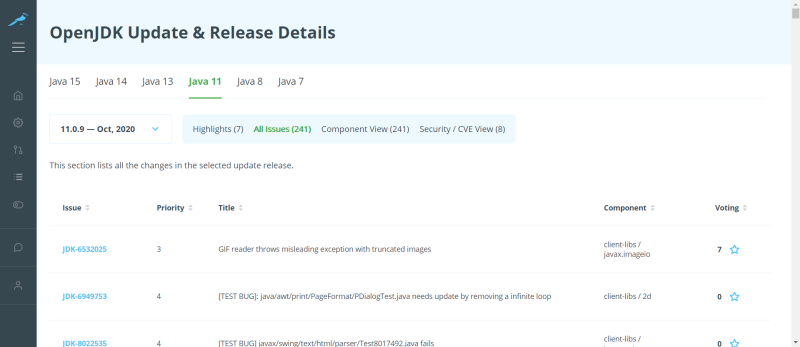| Foojay - All About Java and the OpenJDK |
| Written by Nikos Vaggalis | |||
| Monday, 02 November 2020 | |||
|
Tracking the OpenJDK is not an easy feat. It evolves rapidly under a release cycle of a new version every 6 months, hence there's hoards of new features, changes and bug fixes.This is where foojay steps in, collecting all the relevant information.
What was the alternative? A lot of manual searching. scouring disparate sources such as the OpenJDK mailing lists and official blog posts. So what does foojay do differently? It organizes information into distinct sections:
Java Version Almanac What’s New in OpenJDK/OpenJDK Update Release Details OpenJDK Command Line Arguments
Foojay Today
Although affiliated with Azul,the site is community driven and includes contributors that are Java Champions, like Chris Newland. So all the OpenJDK and Java info you need, cleaned up, categorized and nicely presented under one roof. More InformationRelated ArticlesThe True State of Java and its Ecosystem The Insider's Guide to the Java Web Developer Nanodegree - 1
To be informed about new articles on I Programmer, sign up for our weekly newsletter, subscribe to the RSS feed and follow us on Facebook or Linkedin.
Comments
or email your comment to: comments@i-programmer.info |
|||
| Last Updated ( Tuesday, 03 November 2020 ) |





